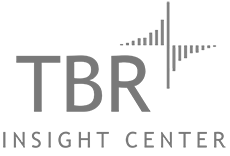Smart city solutions have to think outside the trash bin
The “Connecting Your Business to the Smart Cities We All Live In” panel during PTC’s LiveWorx event included ideas consistent with TBR’s previous views on smart cities. One of the most interesting speakers was Nigel Jacob, the co-founder of the Mayor’s Office of New Urban Mechanics, an R&D organization within Boston’s City Hall. Jacob gave a presentation on the “Boston Smart City Playbook,” compiled by his organization, which lists the following rules for vendor engagement:
- Stop sending sales people.
- Solve real problems for real people.
- Don’t worship efficiency.
- Better decisions, not (just) better data
- Platforms make us go ¯\_(ツ)_/¯.
- Toward a “public” privacy policy
All of these points align well with TBR’s view of how vendors need to improve their go-to-market strategy, but a few stood out. “Stop sending sales people” translates well inside and outside smart city applications. Internet of Things (IoT) is a complex technology, and it is difficult for end users to really understand what IoT can do for them. Public sector officials, just like the CEO, CIO or CTO of any private organization, do not want to listen to a sales pitch about why a technology is great. Instead, in the example of Boston, decision makers desire vendor engineers or consultants to be on-site to explain why IoT is good for their city’s particular challenges, how it can be implemented and how it has worked for others, as well as to provide concrete evidence of what Boston can expect to gain in the long run. Only then will a vendor’s solution be taken seriously.
“Better decisions, not (just) better data” is a point TBR believes vendors should take to heart. Data is a building block to insight, but piles of data with no feasible way to turn the data into actionable insight is little more useful than no data at all. Customers seek insight through data, but if there is not an easy path to achieving insight, its value is significantly reduced. Customers believe that to get value out of IoT, they need to bolster their IT, operational technology (OT) and data scientist staff. TBR believes incorporating artificial intelligence and improving user interfaces to simplify IoT products is a path to unlocking value for business decision makers, enabling them to make better decisions without incurring huge selling, general and administrative expenses.
“Platforms make us go ¯\_(ツ)_/¯” is also parallel to customer concerns recorded by TBR. Platforms are exciting to techies, but they do not mean much to customers. Instead, they generally raise fears of platform lock-in, where customers will be unable to access outside technologies or risk becoming a member of a dying standard. Also, the platform level is often too high for customers to understand how IoT will benefit them. Vendors must continue to boast interoperability and focus on use cases or small deployments. Small deployments that solve immediate problems — not technical and platform-based discussions — will be vendors’ gateways to customers. After a few successful small projects, vendors can introduce customers to the grander view centered on a wide platform.
Bigbelly vice president of North American Distribution and Global Marketing Leila Dillon, another presenter during the panel, explained how Bigbelly solved multiple problems for individual cities by thinking outside the box. The company sells solar-powered waste systems, mostly bins, that automatically compact trash and alert waste management when they need to be picked up. This granted cities substantially increased efficiency not only because automatic compacting eliminated waste buildup but also because the alert system saved wasted time having trucks on routes checking all bins instead of only those that are full. Additionally, Bigbelly observed that by thinking creatively, it could further cities’ smart city goals. It started working with cities to equip waste bins with small-cell technology to enable ubiquitous citizen connectivity. In other cases, the company equipped cameras or sensors to track foot or street traffic to help cities understand congestion. Bigbelly is a great example of a company helping to solve a pointed problem — in this case, making waste collection more efficient — and then working with the cities to build additional IoT use cases one success at a time.




Leave a Reply
Want to join the discussion?Feel free to contribute!